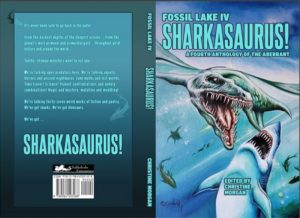Let’s say you live in an isolated area and you don’t have the money for airfare or gas to travel to a large convention. Or maybe you can’t get more than a day or two off from your day job, and if you want to spend more than an afternoon at the con, that’s just not enough time.
Are small local cons and geek markets worthwhile?
One of the benefits to doing a small local con is that many of them are happy to have another guest. You’re probably not struggling for panel time up against the latest New York Times bestselling author. This means it’s easier for you to get a chance to do readings and panels, even if you’ve only got a couple publications under your belt. Small cons are an excellent place to get comfortable doing readings and panels and build up experience.
A geek market is like a dealer’s room without the convention. It’s typically a more attractive venue than a farmer’s market or flea market for a speculative fiction author, because it’s drawing an audience specifically interested in geeky things–sci fi, fantasy, horror, pop culture and collectibles.
Should you get a table at a local con? This will depend on cost of tables, your budget, and what you hope to get out of the con. If you want to attend lots of panels yourself, consider sharing a table or bringing a friend to watch the table while you’re elsewhere. Other cons allowed me to sell books after readings or during signing periods, which was more cost-effective than a table. Always check with the con staff to be sure you are acting in accordance with convention policy. Small local cons may waive registration fees for panelists, or you may receive a partial or full refund on your admission depending on how many panels you are on. Some of them also offer free snacks or meals for staff, which may include panelists like you.
Should you get a table at a geek market? A writer friend of mine has had great success sharing a table with her friend, an artist and toy collector. She says that a good number of people came to the table to look at the toys and art, but stayed to buy books after she started conversations with them. Sharing a table splits costs and gives everyone involved a chance to take breaks, get food, check out the other tables, etc.
There are a few down sides to small local cons and geek markets. First, there’s less likely to be an opportunity to network with publishers and agents. Secondly, you can never be sure how many books you will sell, so if you’re going to a local con because money is tight, be careful. While there’s lots of things you can do to increase your sales, like talking to congoers, doing readings, and offering incentives like bookmarks or buttons, in the end there’s a certain amount of luck involved. Are the people at the con interested in the theme of the books you’re selling, or are they more interested in spending their money on toys, art, or games? Don’t depend on sales to feed yourself or pay your transportation home; you’ll end up resentful and in a tight pinch if you have a tough day. Instead, my goal is to funnel all profits from books back into my writing somehow–upgrading my computer, buying more stock, travel money for future cons.
So are geek markets worth it? The cost of the table is the major factor. Make sure you can afford the table fee even if sales are disappointing. This will be easier if more than one person is sharing a table, or if you’re selling other merchandise besides just books.
Are small local cons worth it? If you are new to conventions, absolutely. You can gain experience and get comfortable with pitching your work, doing panels, reading for an audience, and learning to sell in a smaller setting for far less cost. If you can’t afford time or cost to attend a big con, a small local con can keep you “in the rhythm” of putting yourself out there.
If you’re an experienced congoer, ask yourself whether you’re giving up something else in order to go to the local con. If you’re jetlagged from a big con the weekend before, overextending yourself and getting sick probably isn’t worth it. Rest, family time and writing time are important too. If you’d just be sitting around bored, though, take a day and connect with your local community.

